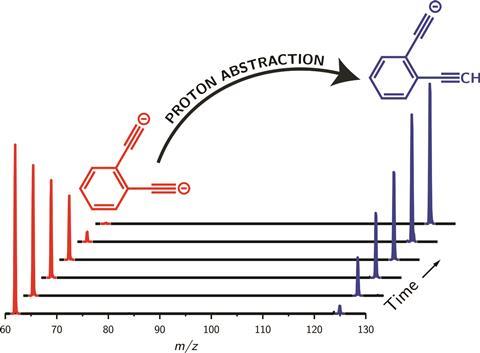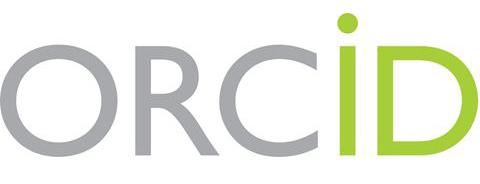Ortho-diethynylbenzene dianion is the strongest base ever made

Source: © Royal Society of Chemistry
The superbasic ortho-diethynylbenzene dianion (red) readily abstracts protons from many weak acids
The methyl anion H3C– was the strongest known base for 30 years, until Tian and colleagues made the lithium monoxide anion in 2008, which has held the record since. Now, scientists in Australia have knocked LiO– down to second place, making a gas-phase dianion with the highest basicity ever found.
Superbases with high proton affinities like n-butyl lithium and sodium hydride are fundamental to organic synthesis. Chemists use them to deprotonate weak acids – the weaker the acid, the stronger the base needed to deprotonate it.
Read the full story by Will Bergius in Chemistry World.
B L J Poad et al., Chem. Sci., 2016. DOI: 10.1039/c6sc01726f











